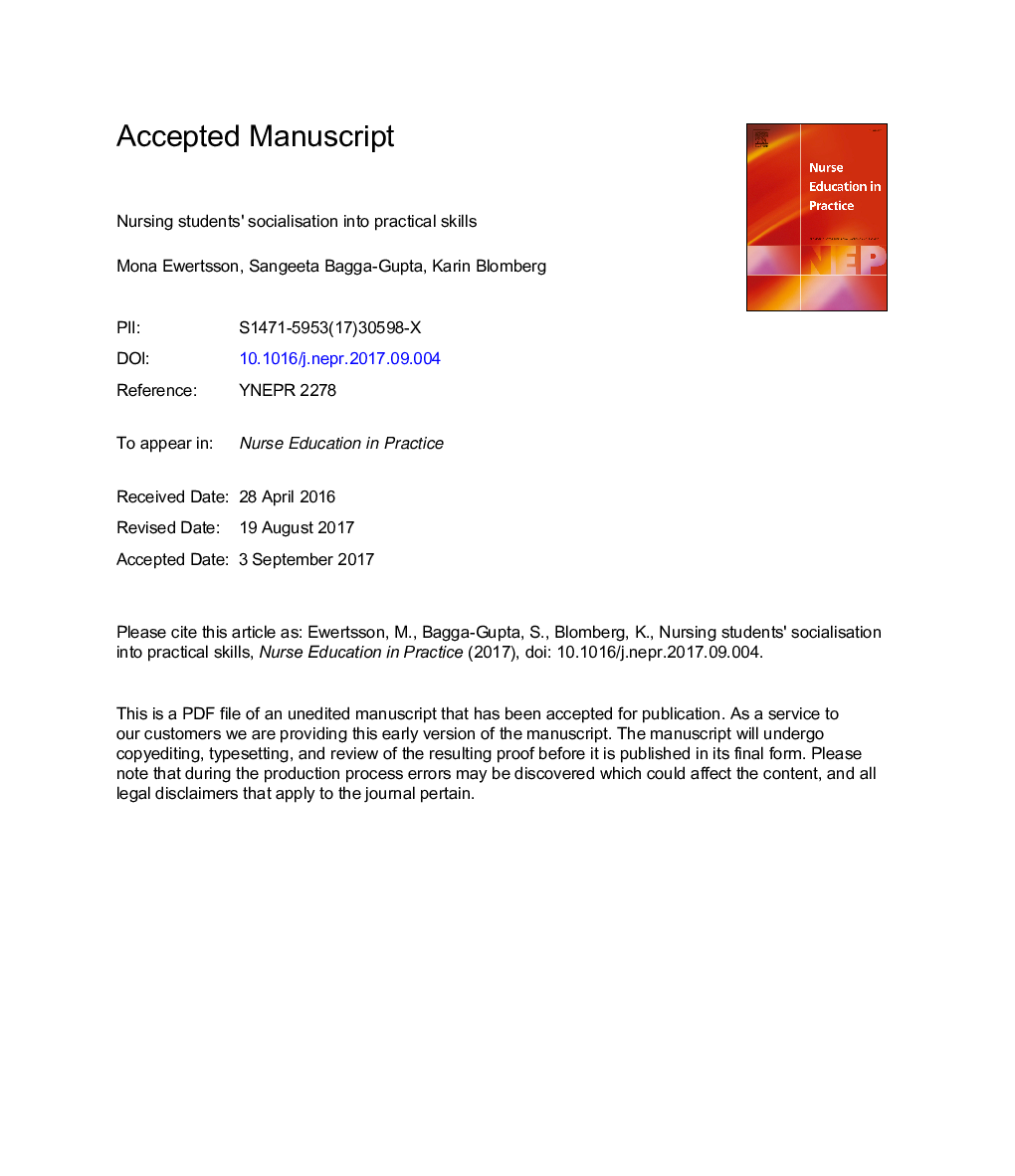| Article ID | Journal | Published Year | Pages | File Type |
|---|---|---|---|---|
| 4940392 | Nurse Education in Practice | 2017 | 22 Pages |
Abstract
Socialisation is a significant factor that shapes nursing students' learning in clinical settings. Little is known about the ways in which students learn practical skills during their clinical practice and how they are socialised into these skills. This knowledge is important for creating an optimal environment for ensuring a high standard of care and patient safety. This study aims to address this knowledge gap. An ethnographic approach was used. Data were collected by participant observations during nursing students' clinical practice in an emergency department at a university hospital in Sweden, and during informal conversations with students and their preceptors. In the analysis, four themes emerged: A reflective approach based on a theoretical framing; Multitasking situations; Shifts in an active role as a nursing student; and Styles of supervision. Students' socialisation into practical skills was shaped by several factors where preceptors played a key role. Teaching and learning styles and interactions between the preceptor and the student shaped the learning situations. A dominant discrepancy regarding whether and how reflections took place between preceptors and students was identified. This highlights the need for creating continuity between the ways that experiences are organised across the settings of learning (university-based and clinically based learning) to enhance nursing students' learning and socialisation into practical skills.
Related Topics
Health Sciences
Nursing and Health Professions
Nursing
Authors
Mona Ewertsson, Sangeeta Bagga-Gupta, Karin Blomberg,
